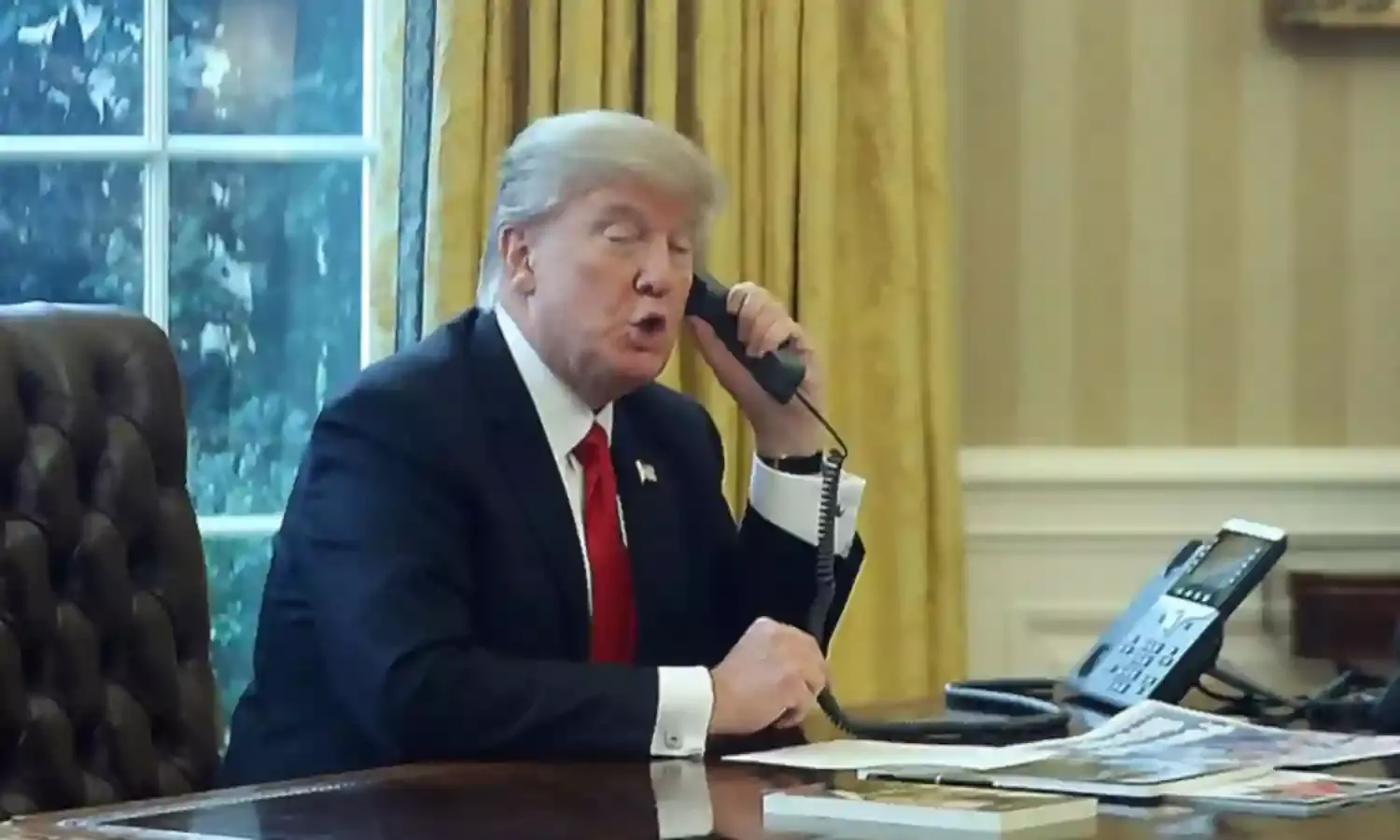'Tough Situation, Good Conversations': Trump Steps In On Kashmir?
Trump says he had 'good conversations' with PM Modi and Imran Khan

NEW DELHI: “Spoke to my two good friends, Prime Minister Modi of India, and Prime Minister Khan of Pakistan, regarding Trade, Strategic Partnerships and, most importantly, for India and Pakistan to work towards reducing tensions in Kashmir. A tough situation, but good conversations!” United States President Donald Trump tweeted today.
Trump spoke to both Indian Prime Minister Narendra Modi and Pakistani Prime Minister Imran Khan on Monday, as tensions over Kashmir continue to escalate. The phone call came after New Delhi said it had not sought US mediation on Kashmir.
India’s ambassador to the US, Harsh Vardhan Shringla, issued the clarification after Trump made a joint media appearance with PM Imran Khan at the White House, saying that he would mediate on Kashmir if both countries agreed. He added that PM Modi had sought his mediation on Kashmir - which India then denied.
"President Trump has made it very clear that his offer to mediate on Jammu and Kashmir is dependent on both India and Pakistan accepting it. Since India has not accepted the offer of mediation, he has made it clear that this is not on the table anymore," Singhania told a US TV channel.
Despite India saying it did not want US mediation, the 30 minute phone call between PM Modi and Trump focused on Kashmir. According to a White House readout of the call, Trump emphasized the importance of keeping peace in the region. "The two leaders [Trump and Modi] further discussed how they will continue to strengthen US-India economic ties through increased trade, and they look forward to meeting again soon,” reads a statement by White House spokesperson Hoga Gidley.
PM Modi reiterated New Delhi’s position, highlighting “the importance of creating an environment free from terror and violence and eschewing cross-border terrorism without exception” - reads a PMO statement. PM Modi "stated that extreme rhetoric and incitement to anti-India violence by certain leaders in the region was not conducive to peace.”
Trump then called Imran Khan, urging the Pakistani PM to “moderate rhetoric” with India and avoid escalating the conflict, the White House said. Imran Khan, in a series of tweets, had referred to the Indian government as "fascist" and "racist”, underscoring the “nuclear arsenal” under New Delhi’s control. Last week, Pakistan raised Kashmir at the United Nations Security Council, with the meeting ending without a resolution.
Trump’s phone calls come amidst the ongoing Afghan peace dialogue, which is de facto linked with Kashmir given Pakistan’s role in brokering it. Pakistan is known to exercise a considerable amount of influence over the Taliban, and has been vital in bringing the militant group onto the negotiating table.
Last week, Pakistan’s ambassador to the United States, Asad Majeed Khan, told the New York Times that given the crisis in Kashmir, Islamabad might consider moving troops currently stationed along the Pakistan-Afghanistan border to the border with Jammu and Kashmir. Roya Rahmani, Kabul’s ambassador in Washington, said the statement was “reckless, unwarranted and irresponsible.”
A statement issued by the Afghan Foreign Ministry said Khan’s statement showed the “sinister intention towards peacemaking in Afghanistan.”
Meanwhile, Afghanistan has seen a deadly upsurge in violence, with a suicide blast two days ago on Saturday killing 63 people in Kabul. The attack targeted a wedding in the Afghan capital, and was the deadliest attack in Kabul this year.
The Taliban denied responsibility, calling the blast "forbidden and unjustifiable", but Afghan President Ashraf Ghani said that the group "cannot absolve themselves of blame, for they provide [a] platform for terrorists.”



